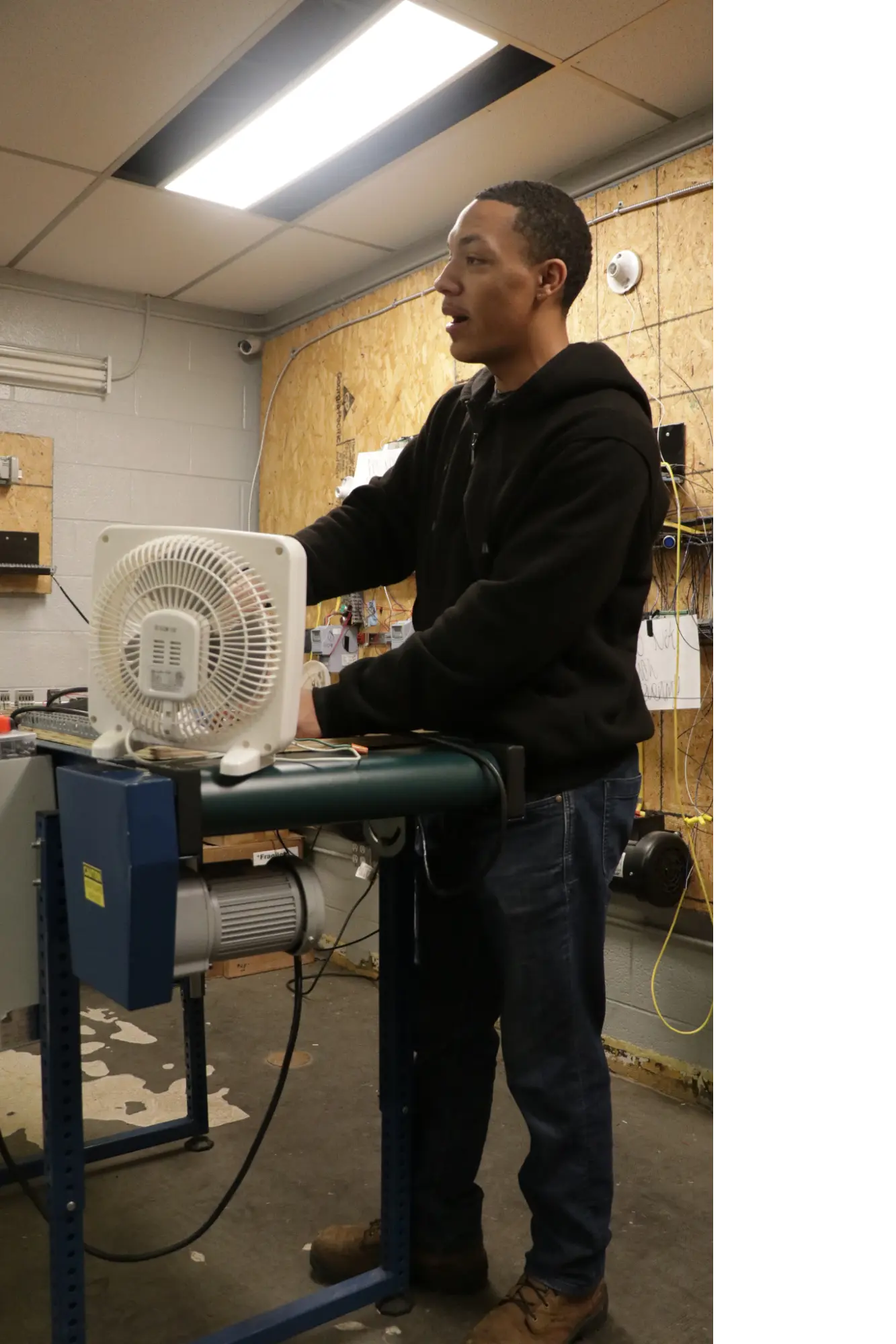Electricians are essential in ensuring the safety and functionality of our homes and workplaces, there are certain professionals that cannot be neglected. Although largely sharing the same base in electrical principles, commercial and residential electrical professionals possess different duties, skills and responsibilities. Aspiring electrical technicians must be aware of the differences between different job roles for effective project completion and efficiency in work.
Commercial And Residential Electrical Technicians: A Comparative Analysis
Household and commercial electrical technicians can be differentiated on the basis of type of work, working environment and educational background.
Household Electrical Technicians’ Area of Work
Skilled trades technicians working as residential electricians have a wide spectrum of responsibilities. These include:
- Residential Electrical Wiring: It is the internal wiring of a residence, consisting of the installation of the electrical system and all associated hardware, appliances, lighting, and power points.
- Troubleshooting: It is the practice of analyzing and correcting faults in the electrical system, including dealing with nonfunctional outlets, defective wiring connections/power sources and system interruptions.
- Code Compliance: In order to ensure assurance and reduce risks, local and national electrical codes and safety regulations should be observed by skilled trades technicians working in the electrical field.
- Service Upgrades: This involves the renovation of existing electrical systems in response to the increased electrical demands in today’s devices and appliances.
- Emergency Repairs: Disposing problems of the electrical system that are imperative such as electrical fault or a short circuit.

Technologists In charge of Commercial Electric Work
Electrical technicians engaging in offices need to do large scale installation that is the process of fitting high voltage – electrical fixtures or equipment into buildings for example offices, factories or even shops. Their other responsibilities include:
- Power Distribution: Involves the design and implementation of systems for power supply as a means of achieving a reliable and optimized source of energy.
- Industrial Equipment: It encompasses the electrical fitting and wiring of machines like electric circuit breakers, controllers, generators, and motors inclusive.
- Fire Alarm Systems: This involves the installation and servicing of fire alarm systems for the businesses’ safety.
- Security Systems: Involves interlinking the electric appliances with security systems like CCTV and door access systems.
Electrician Certification And Skills
Technicians must be knowledgeable enough to understand the use of electrical theory in different working conditions. For this, they need to have basic understanding of electrical principles, proper electrician training and a certificate in electrical work from a renowned institute.
For Residential Electricians
To have a rewarding career in trades, especially in electrical work, one must have a degree or diploma of its equivalent. Household electricians must have:
- Basic Electrical Knowledge: knowledge of codes of conduct applicable in wiring circuits, techniques of cabling and theory of electrical circuits.
- Problem-Solving Ability: The competence to resolve domestic electrical issues.
- Safety Understanding: To ensure safe and accurate installations, technicians should gain proper electrician training focussing on safety tips.
- Communication Skills: This includes listening to the needs of homeowners and explaining technical concepts clearly and comfortably to them.
- Permits and certifications required to carry out electrical work in their various jurisdictions is known as licensing.

Commercial Electrical Systems Technicians
To become an electrician, especially for commercial electricity work, one must have:
- Advanced Electrical Knowledge: Full understanding of power systems, industrial practices, basic electrical engineering, and electrical engineering, all at an advanced level.
- Blueprint Reading: The ability to read the blueprints and technical drawings for the purpose of planning and executing complex installations.
- Project management skills: It involves large scale project implementation, organization of team members and timely execution of the project.
- Safety Compliance: Effective implementation of safety procedures at all times especially in the handling of hazardous materials and working with High voltage.
- Acquiring electrician certification in the specific areas of studies such as industrial or electrical systems for enhanced security or fire safety is referred to as specialized certification.
Spheres Of Work For Electrical Technicians
Qualitative differences can be noted between residential and commercial electrical specialists’ working conditions and environments.

Electrical Technicians In Households
This task entails constructing structures inside people’s homes of various sizes and locations-igned termed residential settings. Getting accustomed to unsociable working hours and additional emergency work is included in this job role. Also, it is a physically demanding work including heavy machinery lifting, working in tight spaces, and climbing up on ladders.
Technicians In Commercial Electrical
This work is done in large scale commercial and industrial spaces. These are regular work hours provisions with minimal flexibility which can be referred to as structured work schedules. Working conditions are usually hostile to safety and health such as those involving high voltage and heavy equipment.
Acknowledging The Contributions Made By Electrical Experts To Our Contemporary Society
Despite the fact that both residential and commercial electrical technicians play an important role in society, there are distinct differences in the scope of their work, skills or expertise as well as working conditions. Commercial electrical contractors usually handle intricate projects in business and industrial settings while residential electrical contractors focus more on installation or repair works in clients’ homes. By understanding these distinctions, we can value the different roles played by electrical professionals in the modern world.
Read More:


